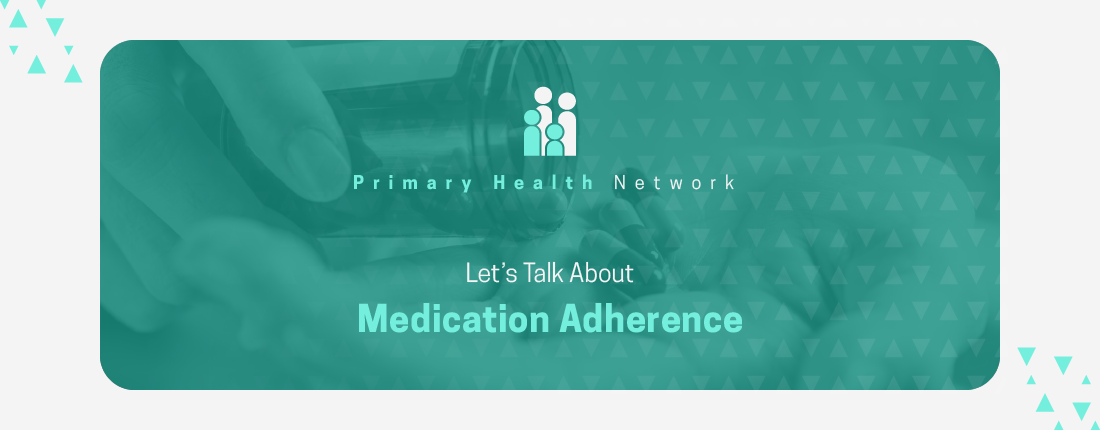One of the most critical issues in the medical treatment of chronic illnesses is patient adherence to medications.
The World Health Organization (WHO) defines adherence as “the extent to which a person’s behavior—taking medication, following a diet, and/or executing lifestyle changes—corresponds with agreed-upon recommendations from a health care provider.”
What is non-adherence?
If a patient takes 80% of their medication in each specific time frame, that’s medication adherence. For example, if a provider were to prescribe Jardiance once a day to a patient with diabetes, and the patient took one pill daily for at least 24 days out of 30 days, then they would be adherent because they would be taking at least 80% of that medication. Anyone taking less than 80% of the prescribed medicines would be considered nonadherent. According to the New England Journal of Medicine, patients take their medication as prescribed only 50% of the time.

How can this be addressed with a patient?
Create a blame-free environment with open-ended questions and an understanding approach, such as, “I know managing medication can be very difficult; how often do you miss taking them?” This way, the patient has an opportunity to let you know if they miss their medications and share potential barriers you can collaboratively address. Patients and providers must work together to improve health outcomes.
What strategies can we use to boost patient medication adherence?
What we do best is look through the patient’s lens! It is no secret that patients are reluctant to share the details of their less-than-optimal medication-taking behavior with their healthcare providers. Sometimes, patients experience “white-coat adherence” when they claim that they are taking their medications as prescribed. Still, the outcomes, such as lab values (e.g., uncontrolled A1C, lipids, coagulation studies), uncontrolled BP, and being a frequent flyer to the ER or constant readmissions, prove different. Patients who miss their appointments and follow-ups, have psychological stressors, anxiety disorders, a history of depression, or low health literacy can be clues to investigate further for non-adherence.
The key strategy component is realizing that true medication-taking behavior is often hidden. Once you discover it, you have to encourage your patients to share why they are not taking their medication(s). Therefore, understanding patient-specific adherence barriers is necessary to determine strategies to improve medication adherence and achieve optimum patient outcomes.
PHN is making strategic efforts to ensure our providers support the ongoing medication adherence campaign. Our pharmacist, Mayonta E. Jefferson, PharmD, is leading a collaborative effort with our partner plans, which has proven beneficial for our patients.
